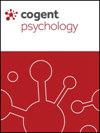Changes in mental health symptoms from April (COVID-19 outbreak) to December 2020 in Norway: A two-wave study
IF 1.7
Q2 PSYCHOLOGY, MULTIDISCIPLINARY
引用次数: 1
Abstract
Abstract The main objective of the study was to investigate changes in mental health symptoms from the start of the pandemic in Norway (April) to December 2020. A total of 6017 participants completed an assessment of the survey at both time points. Main Outcome Measures: Symptoms of anxiety and depression were measured at both time points. Demographic variables and potential risk factors were assessed. There were significant changes (slight increase) in anxiety and depression, but effect sizes were small. Increases in symptoms in anxiety and depression occurred more in the general population than for people with pre-existing mental health problems. Baseline level of symptoms was the most important risk factor. Other significant risk factors included female sex, students, pre-existing mental health problems, increased tobacco use, lost job, and lacking government trust. The longitudinal results replicated findings from the first phase of the pandemic, suggesting that the number of risk factors experienced is associated with symptom severity. The results suggest that mental health symptoms have been quite stable from April to December but with a slight increase among people presenting with subclinical symptoms in April. The study obtained ethical approval from the Regional Committee for Medical and Health Research (REK Nord, 123,324).挪威从2020年4月(COVID-19爆发)到12月心理健康症状的变化:一项两波研究
本文章由计算机程序翻译,如有差异,请以英文原文为准。
求助全文
约1分钟内获得全文
求助全文
来源期刊

Cogent Psychology
PSYCHOLOGY, MULTIDISCIPLINARY-
CiteScore
2.90
自引率
0.00%
发文量
75
审稿时长
12 weeks
期刊介绍:
One of the largest multidisciplinary open access journals serving the psychology community, Cogent Psychology provides a home for scientifically sound peer-reviewed research. Part of Taylor & Francis / Routledge, the journal provides authors with fast peer review and publication and, through open access publishing, endeavours to help authors share their knowledge with the world. Cogent Psychology particularly encourages interdisciplinary studies and also accepts replication studies and negative results. Cogent Psychology covers a broad range of topics and welcomes submissions in all areas of psychology, ranging from social psychology to neuroscience, and everything in between. Led by Editor-in-Chief Professor Peter Walla of Webster Private University, Austria, and supported by an expert editorial team from institutions across the globe, Cogent Psychology provides our authors with comprehensive and quality peer review. Rather than accepting manuscripts based on their level of importance or impact, editors assess manuscripts objectively, accepting valid, scientific research with sound rigorous methodology. Article-level metrics let the research speak for itself.
 求助内容:
求助内容: 应助结果提醒方式:
应助结果提醒方式:


